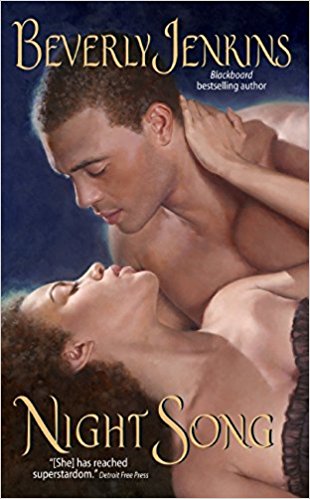 This is Jenkins’ first novel, the one that the publishing world didn’t know what to do with and amazed everyone. A story about post-Civil War black people? What? Who’d want to read that.
This is Jenkins’ first novel, the one that the publishing world didn’t know what to do with and amazed everyone. A story about post-Civil War black people? What? Who’d want to read that.
Apparently loads of people.
It was also my first Jenkins novel, even though I’ve been hearing about her for a while. And when I was at RT, she came into the hotel restaurant while I was having breakfast and stood about 10 feet from me, which was kind of cool.
Specifically, the book is set in 1882. But the prologue occurs 18 years earlier, when 9-year-old Cara Lee Henson watches her free grandfather killed by Union soldiers who beat him to death for not pointing them to a master he didn’t have. Apparently that happened some back then. The Civil War was clearly more complicated than Good vs. Evil. I’d say it was more Kinda-Okay-Sometimes vs. Evil.
Jenkins infuses the novel with history. And actually, the bulk of the book takes place during (or on the cusp of, depending on the historian you choose) what’s considered the nadir of post-Civil War race relations in the U.S. So there is a lot of interesting history that most Americans aren’t familiar with to convey. Some reviews I’ve seen complain about the amount of historical information included in the book, but I enjoyed it. Jenkins has really done her research and it’s interesting to learn more about the post-Civil War period all while reading a good story.
Cara is a 27-year-old Oberlin-trained schoolteacher working in a small town in Kansas. Two years before the story starts, she had a run in with an arrogant—but highly attractive—soldier named Chase Jefferson in Topeka. So she’s shocked to see him leading the procession of the arrival of the Tenth Cavalry, a famous all-black Army unit. She hadn’t known he was that high in rank and certainly never expected to see him again, despite the fact that she hadn’t stopped thinking about him.
Chase, for his part, hasn’t been able to stop thinking about Cara, either. Things proceed from there, with a lot of back and forth between them until Cara finally caves. But it’s not all roses after that (it wouldn’t be a romance if it were).
For me, the historical nature bugs me like historicals always do. The guy’s a womanizer until he meets this wonderful and feisty virginal woman, who totally changes his habits and mindset. She suffers from the strict moral expectations everyone around her forces her to meet (or try to meet), while he cavorts however he wants. And when he marries her, he owns her and she’s okay with that. And there’s loads of prostitution that’s more or less acceptable. I know this is historically accurate, but reading about it stresses me out a little. However, if you’re a fan of historicals, you’re used to it.
One other little thing that I should mention is that Jenkins is a head-hopping writer (we get into multiple characters’ heads in the same scene, in this case just Cara and Chase). Nora Roberts does this, too, so obviously this is an acceptable thing to millions of readers. I always find it jarring.
Still, Night Song is an interesting novel focusing on the late 19th century, a period a lot of historical romance readers might not have been exposed to. So it’s probably worth giving it a read. Plus, it’s by a legend of the genre and if you’re a romance reader, you should have read Jenkins.